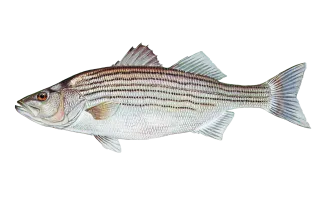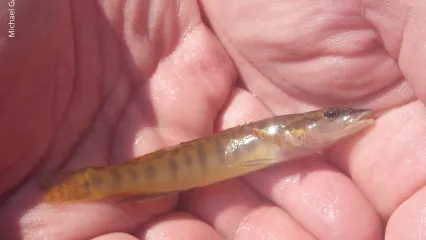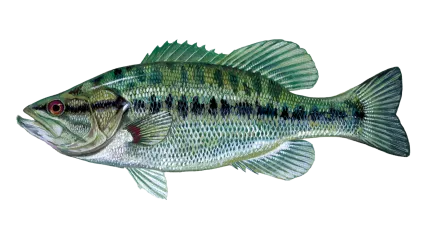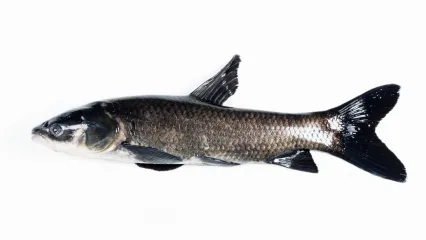
Description
Naturally reproducing populations of striped bass have developed in lakes Texoma and Keystone and in the Arkansas River Navigation System. Foss, Tenkiller, Canton, Great Salt Plains, Grand, and Kaw lakes also have been stocked.
The striped bass is not arched at the back and has two distinct tongue patches. It is also identified by the dark, usually unbroken lines on each side. Similar-looking species include the striped bass hybrid and the white bass.
- The striped bass hybrid, which is a cross between the white bass and the striped bass, has a slightly arched back and two tongue patches. It also has some broken lines on each side.
- The white bass can be identified by the distinctive arched back just behind its head. It also has only one tongue patch.
Facts: Stripers were originally a marine or estuarine species. An anadromous spawner (ascends freshwater streams to spawn), striped bass became landlocked in an artificial impoundment near the Atlantic coast. They adapted so well to that environment that many states, including Oklahoma, began transplanting stripers. Striped bass can reach weights of 40 pounds or more.
The Health of Our Fish Populations Depends on Flowing Water (Article)
Habitat
Stripers are found cruising in large schools in open waters. They do not frequent shorelines.
Food source: Insects, shad, and minnows.
Life Cycle
The spawning urge is triggered at water temperatures of 55 to 70 degrees F., reaching a peak at about 65 degrees. Female stripers may produce up to five million eggs. The eggs are semi-buoyant and require a moving, unobstructed river during incubation. When the water is still, eggs sink into the silt and the embryos die of suffocation.


